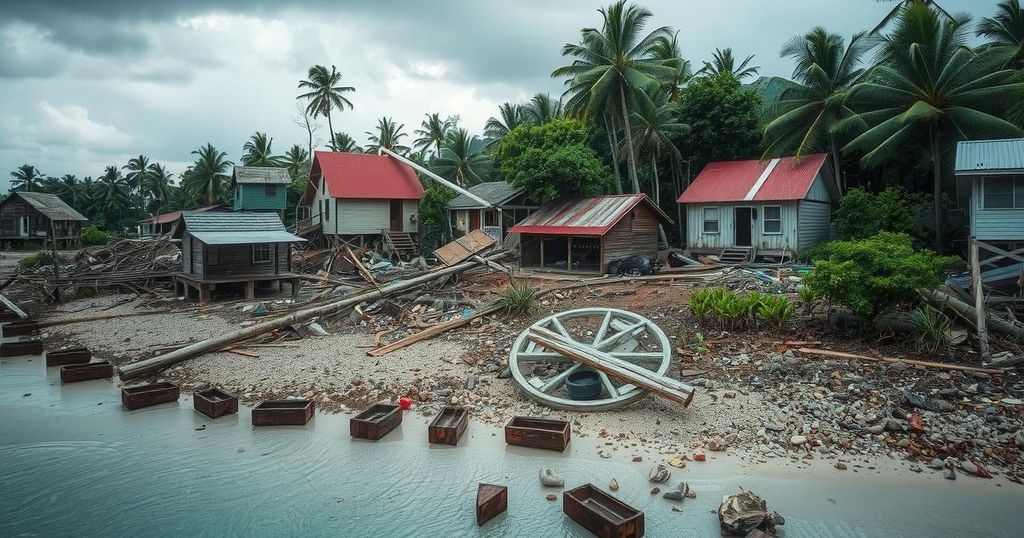Cyclone Chido’s Unprecedented Toll: Hundreds Feared Dead in Mayotte

Cyclone Chido has struck Mayotte, with estimates of fatalities ranging from several hundred to possibly a few thousand. The cyclone brought winds of 226 km/h and storm surges as high as 28 feet. The impoverished conditions of the territory complicate rescue efforts as local customs prioritize quick burial for the deceased.
In a catastrophic turn of events, the Indian Ocean territory of Mayotte has reported alarming estimates of casualties following the devastating impact of Cyclone Chido, which struck the island recently. Authorities indicate that the death toll could number between several hundred to potentially a few thousand, making it one of the most deadly cyclones to affect the region in over nine decades. Currently, the official death count stands at 14; however, the Prefect of Mayotte, François-Xavier Bieuville, has expressed that these figures are preliminary and the actual toll is expected to be substantially higher. Cyclone Chido, with wind speeds reaching 226 kilometers per hour (140 miles per hour), unleashed storm surges that reached heights between 13 and 28 feet, wreaking havoc on the densely populated and impoverished areas of the island, where many residents reside in makeshift shantytowns.
Mayotte, situated in the Indian Ocean off the southeastern coast of Africa, is a French territorial region comprising over 321,000 inhabitants. It is notable for being one of the most impoverished areas within French jurisdiction, with a significant proportion of its population living in substandard housing conditions. A large majority of the island’s residents are Muslims, adhering to religious customs that necessitate the burial of deceased individuals within 24 hours, complicating the process of accurately reporting fatalities following such disasters. The territory has also been a focal point in France’s immigration debates, especially concerning asylum seekers from the Comoros islands.
The dire situation in Mayotte serves as a stark reminder of the vulnerability of regions prone to natural disasters, particularly those lacking adequate resources for disaster response and recovery. As emergency services work tirelessly to locate survivors amidst the rubble, the implications of this cyclone extend beyond immediate loss, highlighting the ongoing humanitarian challenges faced by the territory. The upcoming days will be critical in assessing the full scope of the impact and the necessary aid required for recovery and rebuilding efforts.
Original Source: www.forbes.com







